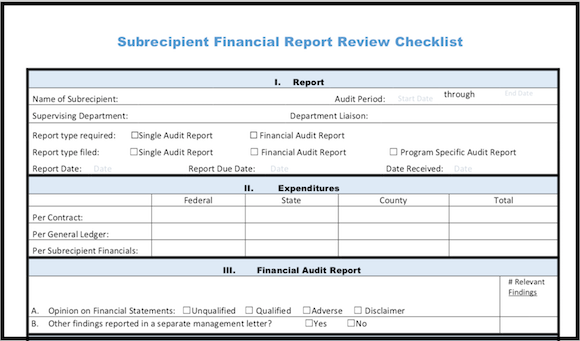|
Most finance department leaders are drowning in a sea of never-ending tasks to take care of. And it seems impossible to get everything done. There is just too much to do and too little time. And they want to maintain a work-life balance, too. Therefore, it is critical for Government Finance Directors, CFOs, and other Administrative Service Directors to get out in front of issues so that they aren’t in constant fire-fighting mode. One of the most important tasks a government finance leader must do is effectively decide how they will spend their own time and, by extension, spend their finance department’s time. But what’s the best way to decide what the most important tasks are? Although every government is unique and every period of time has its own unique challenges, below is a list of eight questions every government finance leader should ask themselves to better prioritize their tasks at hand. 1. Are staff working effectively and efficiently? No finance department will ever be successful if its employees are not working effectively and efficiently. Therefore, it is helpful to ask:
2. Are internal controls adequate? The single most important control is assuring that employees with access to assets do not also have access to the related accounting records. Although it is a large task to fully assure internal controls are adequate, the single most important control is assuring that employees with access to assets do not also have access to the related accounting records. If they do, they have the ability to manipulate the records to hide a loss of assets. Therefore, the first question to ask is: Do any finance employees (who usually have access to accounting records) have access to assets? To answer this question, note that:
To ensure internal controls are adequate, it is important to make the initial accounting record as soon as possible in the process and to separate the assets from the initial accounting record at the earliest opportunity. For example, as soon as the mail is opened, the checks restrictively endorsed, and the list of checks received prepared, then send the list of checks to Finance and send the checks to the bank (not to Finance). Examples of initial accounting records include purchase requisitions, timecards, list of checks received, manual receipts, employee expense reimbursement requests, and approved vendor invoices. 3. Are monthly financial reports handled timely and accurately? Some common questions to ask are:
4. Are compliance requirements met? There are hundreds of things a government must comply with – laws and regulations, grant agreements, contracts, legal settlements, accounting pronouncements, bond covenants, policies, etc. The only way you can know if you are in compliance is to make a list of all the most important financial compliance requirements and to review them periodically. 5. Is the government financially stable? Common questions to ask are:
6. Are customers being served well? Common questions to ask include:
7. Are grants adequately managed? Common questions include:
(For more information on how to manage grants and a sample grants management report, see this blog post.) 8. Are budgets (and variance analysis in related budget vs. actual reports) prepared effectively? Budgets and related documentation should be prepared in enough detail to facilitate a budget vs. actual analysis throughout the year in the monthly budget vs. actual reports. To adequately explain such variances, it is important that budget documentation is in enough detail to understand what was budgeted. For example, if the police supplies budget is based on last year plus an inflationary increase, it will be difficult to know when it comes time to do variance analysis whether the purchase of bulletproof vests was an unanticipated cost or not. * * * * * * Obviously, this list of priorities is not comprehensive. It does not claim to list every important responsibility of a Government Finance Director, CFO, or Administrative Services Director. However, hopefully, this list will inspire Finance Department leaders to decide about what tasks to spend time on every day. If you have more questions on how finance departments can better prioritize their tasks, feel free to reach out to Kevin directly: Kevin Harper, CPA kharper@kevinharpercpa.com (510) 593-503 If you'd like to get more free tips, as well as downloadable tools and templates for your agency, please join our mailing list here!
(We’ll send you a monthly curated selection of our blog posts. You can unsubscribe at any time.)
Comments
|
The Government Finance and Accounting BlogYour source for government finance insights, resources, and tools.
SEARCH BLOG:
Meet the AuthorKevin W. Harper is a certified public accountant in California. He has decades of audit and consulting experience, entirely in service to local governments. He is committed to helping government entities improve their internal operations and controls. List of free Tools & Resources
Click here to see our full list of resources (templates, checklists, Excel tools & more) – free for your agency to use. Blog Categories
All
Need a Consultation?Stay in Touch! |
Search Across Entire Site:
HELPFUL LINKS:
|
461 2nd Street, #302
San Francisco, CA 94107 (510) 593-5037 KHarper@kevinharpercpa.com |




 RSS Feed
RSS Feed